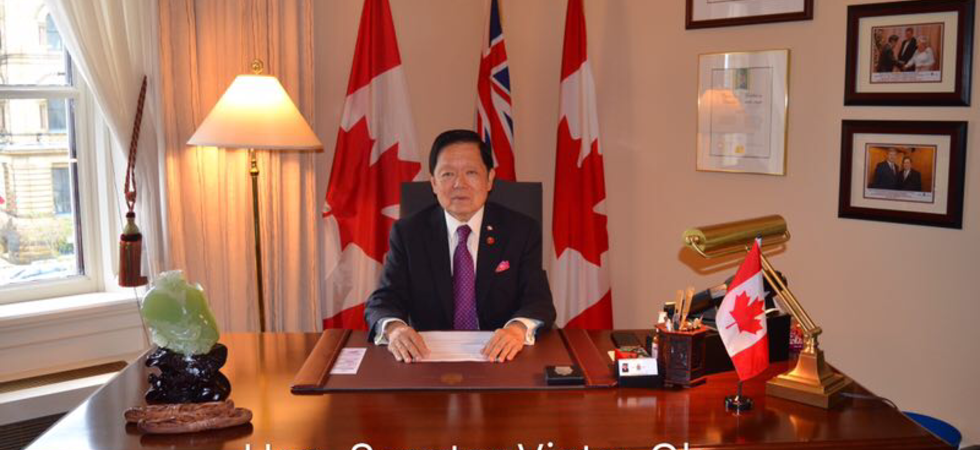胡子修在參議院慶祝亞裔文化遺產月致辭
聯邦參議員胡子修在參議院致辭慶祝亞裔文化遺產月,並向4 月 27 日去世的華裔作家崔維新致敬。
崔維新被譽為“加拿大最有講故事天賦的人”,其著作《玉牡丹》等刻 畫了華裔身份認同,強調接納包容,成為加國文壇的里程碑。今天亦是“排華法案”廢除72 週年紀念。這是加拿大歷史上唯一禁止特定人種入境加拿大的法律。正是通過各族裔 人民為維護自身權利而進行的不懈抗爭,加拿大才成為最成功的多元文化社會之一。
聲明全文如下:
Honourable Senators, it is with great pride that I rise today to mark Asian Heritage Month. As stated in the declaration 17 years ago, “Diversity represents one of Canada’s greatest strengths, and we strive to ensure that all Canadians have the opportunity to reach their full potential and participate in Canada’s civic life.”
One Chinese-Canadian - who did just that - was celebrated author, Wayson Choy, considered to be a pioneer of Asian literature here in Canada. His most lauded works The Jade Peony and Paper Shadows: A Chinatown Childhood explored the difficult issues of identity politics and the challenges of growing up in an immigrant community in Vancouver in the 1950s.
This courageous and enduring author, who recently passed away, had his remarkable accomplishments fittingly recognized in 2005 when he received the Order of Canada.
Choy’s resolve to lean into adversity was remarkable and serves as a prime example of how one can find success even when confronted with great struggle.
Today, we are fortunate to live in a country that welcomes and embraces diversity. However, this has not always been the case, for our history includes many sad examples of systematic discrimination against cultural minorities. For example, on this day, May 14th, we mark the 72nd anniversary of the repeal of the Chinese Exclusion Act of 1923. This law not only imposed a head tax but restricted nearly all Chinese immigrants to Canada.
In the late 1940’s, Kew Dock Yip, Canada's first lawyer of Chinese descent, along with a group of lawyers and activists, successfully lobbied for the repeal of the Act.
Some 60 years later, a formal apology was made by Conservative Prime Minister Stephen Harper whom I proudly quote: "We have the collective responsibility to build a country based firmly on the notion of equality of opportunity, regardless of one's race or ethnic origin.”
The Japanese community also suffered injustices and in 1988, Conservative Prime Minister Brian Mulroney acknowledged and apologized saying “the treatment of Japanese Canadians during and after World War II was unjust and violated principles of human rights as they are understood today.”
I believe we should continue to learn from our mistakes in order to pave an inclusive and respectful path for future generations and set an example for the world. Colleagues, I encourage you to attend the Asian Heritage Month reception this evening co-hosted by my fellow colleagues. Together, we will celebrate our cultural diversity while recognizing the positive impact of the Asian community throughout Canada’s civic life.
Thank you.

